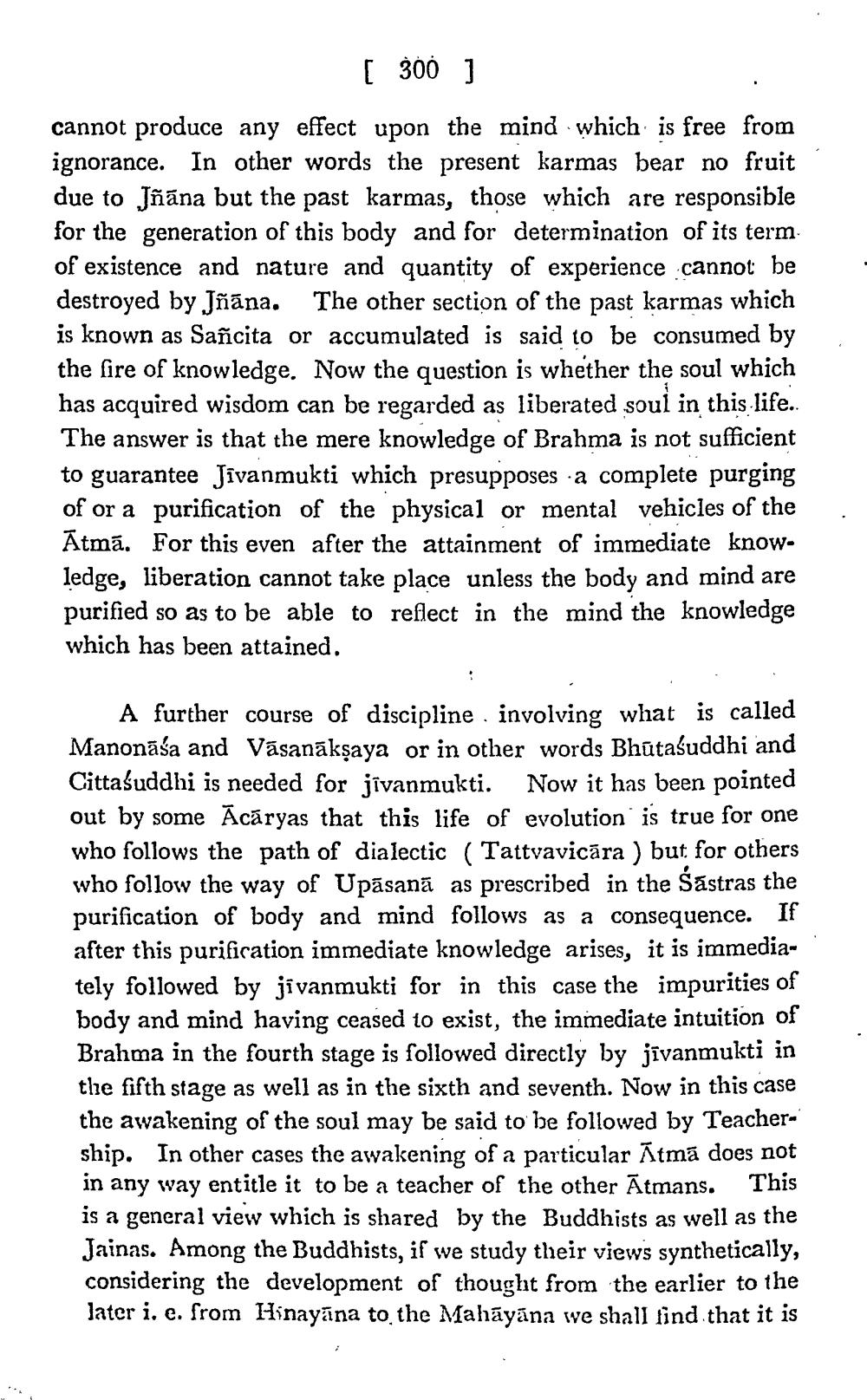________________
[ 300 ] cannot produce any effect upon the mind which is free from ignorance. In other words the present karmas bear no fruit due to Jñāna but the past karmas, those which are responsible for the generation of this body and for determination of its term of existence and nature and quantity of experience cannot be destroyed by Jñāna. The other section of the past karmas which is known as Sañcita or accumulated is said to be consumed by the fire of knowledge. Now the question is whether the soul which has acquired wisdom can be regarded as liberated soul in this life.. The answer is that the mere knowledge of Brahma is not sufficient to guarantee Jivanmukti which presupposes a complete purging of or a purification of the physical or mental vehicles of the Ātmā. For this even after the attainment of immediate knowledge, liberation cannot take place unless the body and mind are purified so as to be able to reflect in the mind the knowledge which has been attained.
A further course of discipline involving what is called Manonāśa and Vāsanākşaya or in other words Bhūtasuddhi and Cittasuddhi is needed for jīvanmukti. Now it has been pointed out by some Ācāryas that this life of evolution is true for one who follows the path of dialectic ( Tattvavicāra ) but for others who follow the way of Upāsanā as prescribed in the Śástras the purification of body and mind follows as a consequence. If after this purification immediate knowledge arises, it is immediately followed by jivanmukti for in this case the impurities of body and mind having ceased to exist, the immediate intuition of Brahma in the fourth stage is followed directly by jīvanmukti in the fifth stage as well as in the sixth and seventh. Now in this case the awakening of the soul may be said to be followed by Teachership. In other cases the awakening of a particular Ātmā does not in any way entitle it to be a teacher of the other Ātmans. This is a general view which is shared by the Buddhists as well as the Jainas. Among the Buddhists, if we study their views synthetically, considering the development of thought from the earlier to the later i. e. from Hinayāna to the Mahāyāna we shall find that it is




